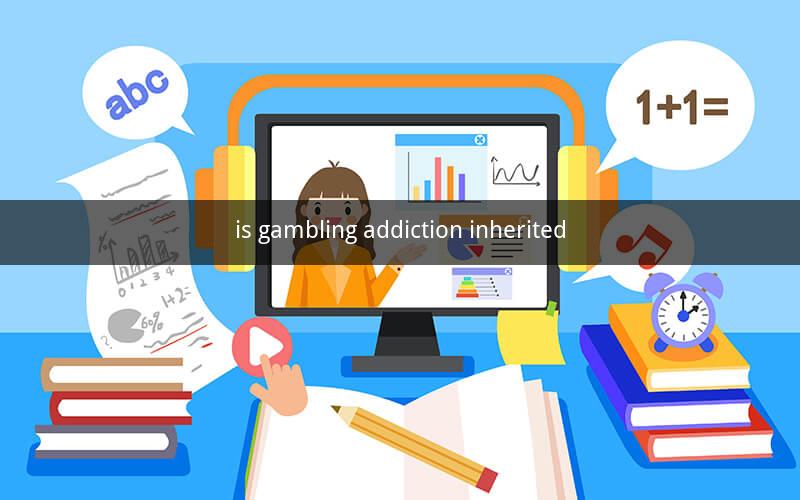
Introduction to the Inheritance of Gambling Addiction
Gambling addiction has become a significant public health concern in recent years. Understanding the nature of this addiction and its potential inheritance is crucial in developing effective prevention and treatment strategies. This document delves into the scientific research and theories surrounding the hereditary aspect of gambling addiction, exploring the genetic, environmental, and psychological factors that contribute to its development.
Table of Contents
1. Understanding Gambling Addiction
2. Genetic Factors in Addiction
3. The Role of Environmental Factors
4. Psychological Factors
5. Twin and Adoption Studies
6. Genetic Markers and Genes
7. Gene-Environment Interaction
8. Treatment and Prevention Strategies
9. Conclusion
10. Questions and Answers
1. Understanding Gambling Addiction
Gambling addiction, also known as problem gambling, is a chronic, progressive disorder characterized by the inability to control the urge to gamble, despite harmful consequences. It can lead to significant financial, social, and psychological problems.
2. Genetic Factors in Addiction
Research suggests that genetic factors play a role in the development of gambling addiction. Studies have found that individuals with a family history of addiction are more likely to develop a gambling problem. Genetic markers and genes have been identified that may predispose individuals to addiction.
3. The Role of Environmental Factors
While genetics may contribute to the risk of developing gambling addiction, environmental factors also play a significant role. Exposure to gambling activities, social support, and personal stressors can influence an individual's susceptibility to addiction.
4. Psychological Factors
Psychological factors, such as the need for excitement, the desire to escape reality, or the thrill of winning, can contribute to the development of gambling addiction. These factors may interact with genetic and environmental factors to increase the risk of addiction.
5. Twin and Adoption Studies
Twin and adoption studies have provided valuable insights into the hereditary aspect of gambling addiction. These studies have shown that the presence of a gambling addiction in one twin or adoptee is associated with an increased risk of addiction in the other twin or adoptee.
6. Genetic Markers and Genes
Several genetic markers and genes have been associated with gambling addiction. These include the dopamine receptor genes, which are involved in the brain's reward system, and the serotonin transporter gene, which plays a role in mood regulation.
7. Gene-Environment Interaction
The interaction between genes and environmental factors is critical in the development of gambling addiction. Certain genetic markers may make individuals more vulnerable to the negative impacts of environmental stressors, such as exposure to gambling.
8. Treatment and Prevention Strategies
Effective treatment and prevention strategies for gambling addiction involve a combination of psychological, pharmacological, and social interventions. Cognitive-behavioral therapy, support groups, and genetic counseling are some of the approaches that can help individuals manage their addiction.
9. Conclusion
While gambling addiction is a complex disorder with multiple contributing factors, recent research suggests that genetic inheritance plays a significant role. Understanding the genetic and environmental factors that contribute to addiction can lead to more effective prevention and treatment strategies.
Questions and Answers
1. What is the primary risk factor for developing gambling addiction?
- A combination of genetic, environmental, and psychological factors contributes to the risk of developing gambling addiction.
2. Can genetics alone cause gambling addiction?
- No, genetics alone cannot cause gambling addiction. Genetic predisposition must interact with environmental and psychological factors.
3. Are all individuals with a family history of addiction at risk of developing gambling addiction?
- No, not all individuals with a family history of addiction will develop gambling addiction. Other factors, such as environmental exposure and personal resilience, also play a role.
4. How can twin and adoption studies help us understand the hereditary aspect of gambling addiction?
- Twin and adoption studies can help determine the extent to which genetic factors contribute to gambling addiction by comparing the risks in genetically identical or non-identical twins and adopted individuals.
5. What role do dopamine receptor genes play in gambling addiction?
- Dopamine receptor genes are involved in the brain's reward system. Mutations in these genes may contribute to an increased risk of developing gambling addiction.
6. Can social support reduce the risk of developing gambling addiction?
- Yes, social support can help reduce the risk of developing gambling addiction by providing emotional and practical support to individuals who may be vulnerable.
7. How can genetic counseling help in the treatment of gambling addiction?
- Genetic counseling can help individuals understand their risk factors for addiction and provide personalized treatment strategies based on their genetic makeup.
8. Are there any pharmacological treatments for gambling addiction?
- Yes, certain pharmacological treatments, such as mood stabilizers and antidepressants, have been used to treat gambling addiction.
9. Can cognitive-behavioral therapy (CBT) be effective in treating gambling addiction?
- Yes, CBT is a widely used and effective treatment for gambling addiction. It helps individuals develop coping strategies and change negative thought patterns.
10. How can society contribute to the prevention of gambling addiction?
- Society can contribute to the prevention of gambling addiction by implementing stricter regulations on gambling, raising awareness about the risks of addiction, and providing support services for individuals struggling with gambling problems.